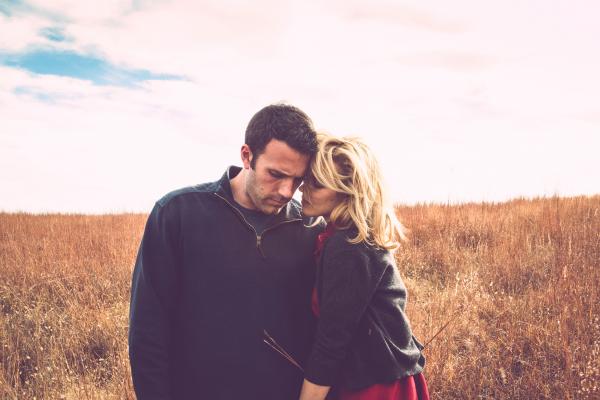The last Terrence Malick film I went to see was Tree of Life, in which the critically acclaimed director — and devout Christian — advised audiences to “experience [the film] like a walk in the countryside. You’ll probably be bored or have other things in mind, but perhaps you will be struck, suddenly, by a feeling, by an act, by a unique portrait of nature.” Needless to say, the film was long — extremely beautiful, but a wee bit slow.
So you can imagine the shock I felt when Malick’s latest film, To the Wonder, abruptly ended after almost two hours and I thought to myself, “Wait, it’s already over?”
To the Wonder is certainly different from its immediate predecessor in Malick’s catalogue — there aren’t any dinosaurs in his latest effort. But it does still manage to have both the look and feel of a Malick film (i.e., it intersperses a linear story with lots of fluid, beautiful cinematography shot during “magic hour” with voice overs asking deep questions), albeit one that doesn’t drift off into long montages of the creation of the universe with voiceovers almost lifted from the book of Job.
Even more different is the theme Malick chooses to explore: love. Where Tree of Life wrestled with serious questions about God — particularly one that allows suffering and evil — through the lens of a 1950s Texas family, To the Wonder examines love through the stories of a priest (Javier Bardem) and the broken romantic relationships of a middle-aged American man (Ben Affleck). Both films take on distinctly human themes through human stories. (Interestingly enough, I don’t remember hearing the names of the characters in To the Wonder; although, I may just have missed it.)
The central theme of the film, the one it keeps coming back to like — wait for it — a love bird who just can’t seem to let that special someone go, is the cyclical nature of love. Ben Affleck’s character falls in love with a French woman, Olga Kurylenko, but they constantly go through a series of ups and downs. For a few months, he’ll visit and they’ll ascend the stairs of the ancient, beautiful castle that is love, going up, as Kurylenko says as she actually climbs the stairs of an ancient French castle, “To the wonder,” and the next month they’ll get in a fight and hate each other. The feeling of love will be gone, leaving Kurylenko constantly asking herself, Affleck, and God, “Why can’t we always stay up there?”
Their love story is juxtaposed with a different kind of love story: one between a priest and God. Bardem’s character is in the same disillusioned, depressed state in his relationship with God as Kurylenko is in her relationship with Affleck’s character. However, Bardem actually ends up preaching a sermon on love to Affleck and Kurylenko’s characters, where the priest asserts that love is a duty and a command, not a fleeting emotion. The priest constantly asks God to fill him with some semblance of joy or even a knowledge of his presence, but all he can do is simply tell himself that God is present everywhere and continue his pastoral duty of visiting the sick and the elderly. It looks taxing, depressing, and difficult, but it also looks realistic.
All of this is bookmarked by the explicit acknowledgment of a divine love that loves us that doesn’t appear to be nearly as fickle as Kurylenko and Affleck’s relationship.
That said, Malick’s Christian faith comes out strongly in the film. While this film seemed almost a little too blatant and on the nose — it might alienate people who aren’t Christians — I still really appreciate Malick’s ability to think deeply about life and God through film in a beautiful way. It’s still solid filmmaking and storytelling with complex and realistic characters.
I definitely recommend To the Wonder, especially for Christians looking to explore a complex part of human existence through a beautiful movie.
Brandon Hook is the Online Assistant for Sojourners.
Got something to say about what you're reading? We value your feedback!
